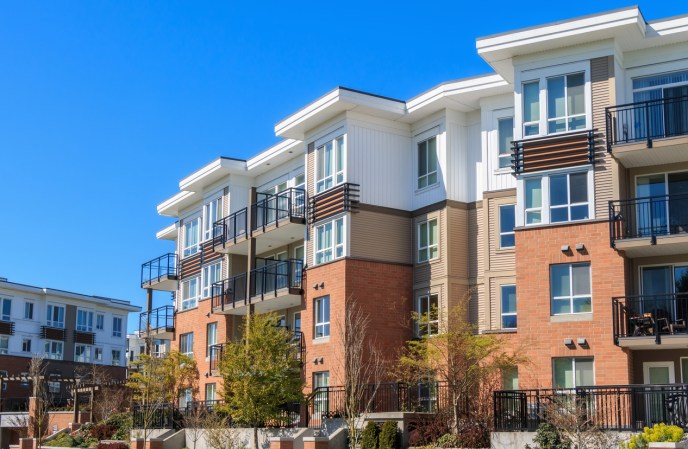We may earn revenue from the products available on this page and participate in affiliate programs. Learn More ›
The hot housing market of the past couple of years saw home buyers in bidding wars and having to settle for less in a home than they originally wanted—all for the privilege of grabbing a piece of the American dream, owning their own home. Now, on top of a still-crazy housing market where demand far exceeds supply, inflation is rising, and the Federal Reserve is set to raise interest rates more than once this year in an attempt to slow inflation down. Mortgage rates are following suit.
If you’re looking to buy a home, a higher interest rate is concerning, but knowing what to expect and learning how to make the most of the current economic situation will increase the chances of successfully buying a house or condo this year.
Inflation’s Impact on the Housing Market
Inflation affects more than just consumer prices. Housing costs rise and fall on several factors, including the price of building materials, the local cost of living, and the demand for housing in a specific area. According to financial guru site The Motley Fool, as long as inflation continues to rise in the consumer sector, the cost of housing will also likely increase—or even outpace the rate of inflation. That’s the bad news. But, there’s still hope.
Higher Mortgage Rates Decrease Buying Power
Mortgage rates have been on the rise, and are currently the highest they’ve been since January 2020. When mortgage rates increase, mortgage applications decrease as more buyers—especially first-time buyers—are priced out of the market, according to Realtor.com. In addition to still-rising housing costs, higher rates result in higher mortgage payments. On average, buyers have seen a mortgage increase of about $290 per month compared to a year ago.
Related: Mortgage Prequalification vs. Preapproval: 7 Differences to Know About

Down Payments Will Increase
Although rising housing costs should slow slightly in the coming year, as long as inflation is on the rise, the price to buy a home will still likely increase. According to The Motley Fool, projected year-over-year (YOY) housing costs will likely rise 16 percent. That means a house priced at $400,000 in 2021 will cost $464,000. Potential home buyers who saved up $80,000 (20 percent) for a down payment to buy a $400,000 house will now need to come up with $92,800 more for a down payment on the same home.
Higher Rates May Slow Rising Home Values
More homes become unaffordable when mortgage rates rise. This results in fewer active buyers, which subsequently reduces the demand for housing. While there’s still a substantial shortage of houses on the market, fewer buyers and less demand tend to reduce home prices. Even if higher mortgage rates don’t bring housing prices down, they’re likely to slow the runaway increase in home values seen during the peak of the pandemic years.

An ARM Locks in a Lower Rate—For Now
Higher mortgage rates need not stop you from buying the home of your dreams if you take an adjustable-rate mortgage (ARM). But, be aware, ARMs are not for everyone. An ARM allows the buyer to lock in at a lower-than-average mortgage rate for a set term, say 3-5 years, before the rate increases. For those who plan to move again before the lower rate expires, an ARM can be a money-saving proposition. However, a fixed rate loan might be a better option for those who plan to live in the home for a longer period.
Related: Solved! What Are the Different Types of Loans for a Home?
Watch Rates and Lock In When They Drop
It’s a well-kept secret in the lending industry that home buyers don’t have to settle for the rate the first lending company quotes. Shop lenders and ask about their rates—they’re not all the same. After making an offer on a home and having a mortgage approved, most lenders allow buyers to lock in on the rate any time in the 30-60 days after loan approval. Keep track of the rates daily on a site like NerdWallet, and call the lender and lock in if they drop. Rates fluctuate—for example, they recently dropped slightly in response to the war in Ukraine.









